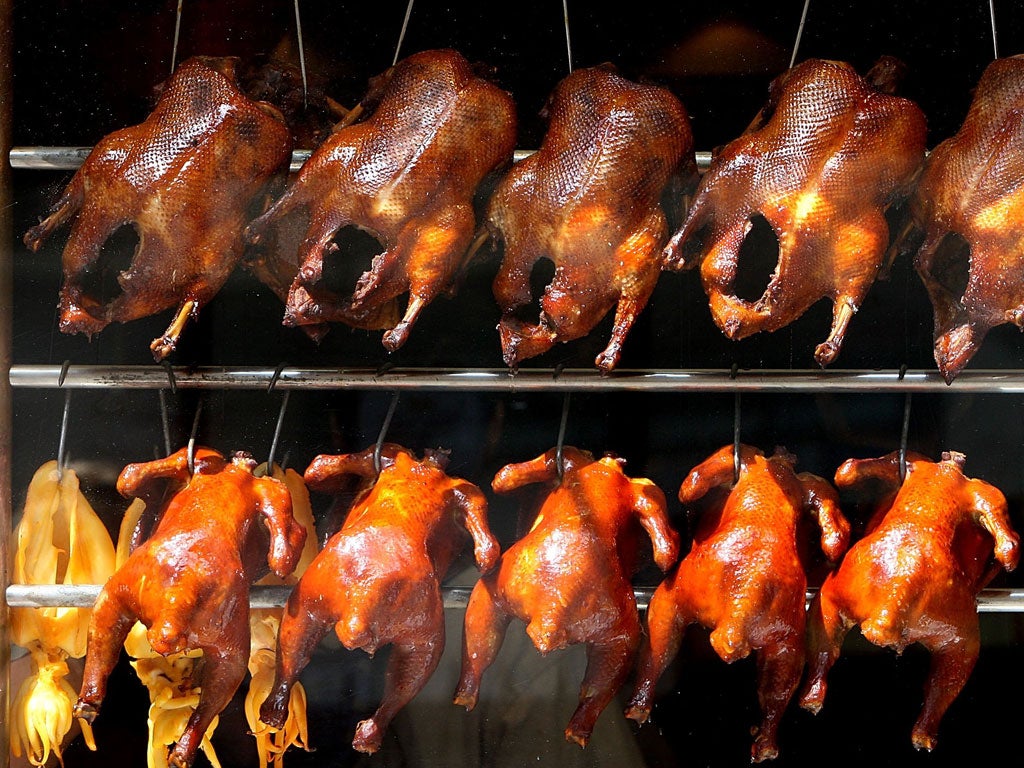'Change the law to cut salt in our takeaways'
Study of popular fast foods shows levels of sodium that far exceed recommended limits

Your support helps us to tell the story
From reproductive rights to climate change to Big Tech, The Independent is on the ground when the story is developing. Whether it's investigating the financials of Elon Musk's pro-Trump PAC or producing our latest documentary, 'The A Word', which shines a light on the American women fighting for reproductive rights, we know how important it is to parse out the facts from the messaging.
At such a critical moment in US history, we need reporters on the ground. Your donation allows us to keep sending journalists to speak to both sides of the story.
The Independent is trusted by Americans across the entire political spectrum. And unlike many other quality news outlets, we choose not to lock Americans out of our reporting and analysis with paywalls. We believe quality journalism should be available to everyone, paid for by those who can afford it.
Your support makes all the difference.High street takeaway meals can contain more than twice the amount of salt that an adult should eat in an entire day, according to new research which suggests that salt levels in some the nation's most popular fast foods are "alarmingly high".
Chinese food and pizzas are the worst offenders, according to researchers whose study is based on more than 400 meals and 23 different types of takeaway food.
The study in the journal Appetite looked at salt levels in popular hot takeaway meals bought at small, independent outlets in Merseyside and the North-west. A total of 411 samples of 23 different types of takeaway meals were bought, frozen and analysed for the study at Liverpool John Moores University.
The results showed that none of the 23 different types of takeaway meals contained less than one third of the NHS recommended salt intake for adults of 6g a day – about one full teaspoon. A single portion of the average takeaway meal contained more than half the daily limit.
Some 75 per cent of the salt in the average adult diet is derived from prepared and processed food, which makes it difficult to ration. Health watchdogs are increasingly concerned about the levels of salt in food, which has been linked to a higher risk of high blood pressure, heart disease and stroke, as well as kidney stones, stomach cancer, asthma and osteoporosis.
They suggest that lowering salt intakes by only 10 per cent would lead to 6,000 fewer cardiovascular deaths in the UK, with a saving to the economy of £1.5bn a year.
While a number of studies have looked at the salt content of supermarket products, the researchers say that with a growing number of people eating takeaways – 22 per cent of people buy a takeaway at least once a week – there is an urgent need to investigate salt content in takeaway food. "Our results show the salt content in these foods is alarmingly high," says the study. "As voluntary guidelines regarding salt reduction do not result in adequate changes, some statutory regulation to lower salt concentration in takeaway foods should be considered."
Across the range of foods studied, delivery pizzas had the highest salt content – an average of 9.45g. Chinese came second with 8.1g, followed by kebabs (6.2g), Indian (4.7g), and English (2.2g). But some individual Chinese meals contained far more than the UK recommended intake, according to the study: "A single portion of beef and black beans with fried rice contained 27g of salt and a single portion of prawn chow mein contained 21g of salt per portion."
In Indian food, an average portion of chicken tikka masala with keema rice had a salt concentration of nearly 7g, which was 50 per cent higher than most other Indian dishes. An average doner kebab and chips had 6.5 grams, while a typical shish kebab had not much more than 4g.
English food came out with the lowest amounts – chicken and chips, 2g, and fish and chips 3g – but the figures did not include salt traditionally added to chips after they are prepared.
"Reducing the nation's salt intake will save lives," says Katharine Jenner, campaign director of Consensus Action on Salt and Health (Cash). "Major supermarkets and food manufactures are doing their bit, yet there are thousands of takeaways and fast food restaurants that still have their heads in the sand. They need to stop hiding salt in our food and start making significant reductions.
"Legislation for salt reduction has been adopted by other countries, namely South Africa, but in the UK it could take years – in which time thousands more will have died from strokes, heart attacks and heart failure."
Join our commenting forum
Join thought-provoking conversations, follow other Independent readers and see their replies
Comments